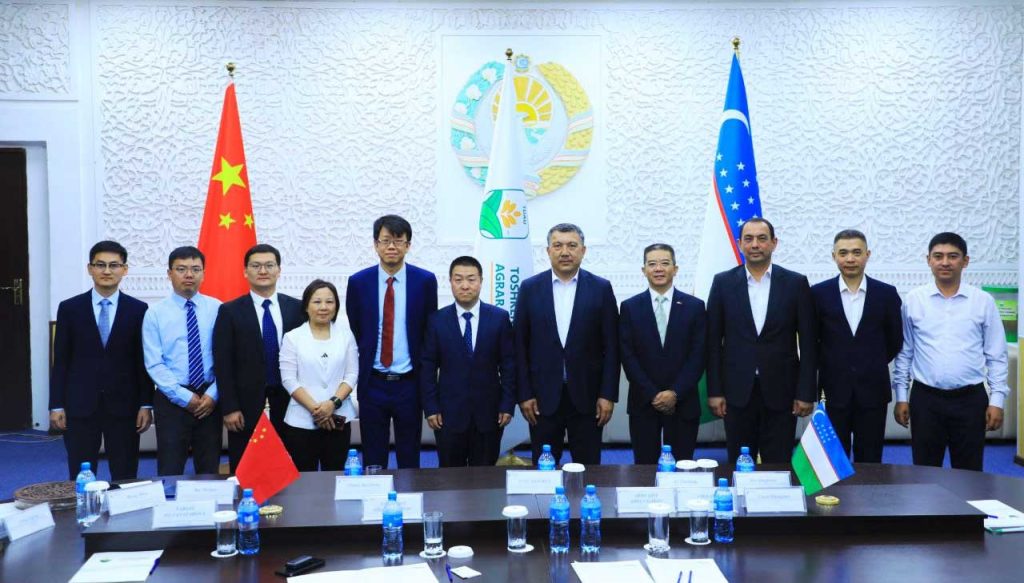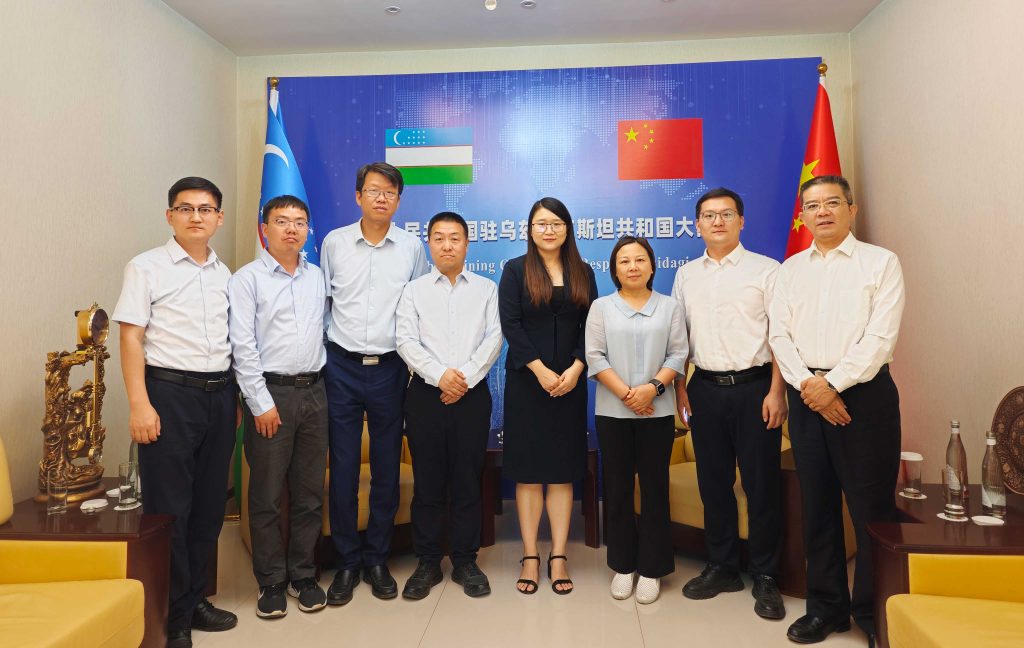Hrunan successfully visits Uzbekistan to deepen international smart water conservancy cooperation
To promote practical cooperation in water science and technology under the Belt and Road Initiative (BRI), and in response to formal invitations from Tashkent Institute of Irrigation and Agricultural Mechanization Engineers National Research University (TIIAME NRU) and Tashkent State Agrarian University, Beijing Hrunan Technology Co., Ltd. formed a joint delegation with the China Institute of Water Resources and Hydropower Research (IWHR) for a visit and technical exchange to Uzbekistan from June 23 to 27, 2025. The core objectives of this visit were to advance the implementation of cooperative projects and solidify the strategic partnership between China and Uzbekistan in the water sector. The agenda spanned multiple dimensions including university collaboration, government engagement, ecological governance, and financial support.

During the visit, Mr. Li Jianming, Chairman of Beijing Hrunan Technology Co., Ltd., and Mr. Zhang Baozhong, Director of the Water Resources Research Institute at IWHR, signed Memorandums of Understanding (MoUs) with Uzbekistan’s leading universities. Mr. Mirzaev Bahadir, Rector of TIIAME NRU, expressed strong anticipation for the tripartite cooperation in areas such as modern irrigation district construction, water metering and monitoring, and industry talent development, stating this initiative would inject new momentum into Uzbekistan’s water conservancy sector.

Mr. Oblomuradov Nazrullo, Rector of Tashkent State Agrarian University, emphasized the potential for tripartite cooperation in agricultural water-saving irrigation, digital agriculture, and industry-academia-research synergy to support sustainable agricultural development and enhanced water efficiency in Uzbekistan.

The delegation visited the Ministry of Water Resources of Uzbekistan and its subordinate research institutions. Mr. Zokir Ishpratov, Deputy Minister of Water Resources, explicitly conveyed the urgent need to introduce China’s advanced water conservancy technologies.

During discussions, the delegation systematically shared China’s practical experience in agricultural water intake metering, comprehensive water pricing reform, and water-saving technologies. Both sides reached cooperative intentions on jointly implementing water science and technology demonstration projects, laying the foundation for technology promotion.

The delegation visited the International Fund for Saving the Aral Sea (IFAS), a platform for sustainable development in Central Asia, and held talks with its head, Mr. Vadim Sokolov. Both sides focused on exploring cooperation in water conservation and ecological protection projects within the Aral Sea basin, clarifying shared intentions for collaboration in ecological restoration and water resource management.

The delegation visited the National Bank for Foreign Economic Activity of the Republic of Uzbekistan (NBU). Mr. Farhod Nasriev, Deputy Chairman of the Board of NBU, expressed full support for the cooperation. Both sides held in-depth discussions on the implementation pathways and cooperation models for modern irrigation district construction projects.

Representatives from the Embassy of the People’s Republic of China in the Republic of Uzbekistan participated throughout the event and provided full support. During a meeting with the delegation, the Director of the Embassy’s Political Section provided precise guidance by analyzing Uzbekistan’s current development needs and policy directions, further clarifying the strategic positioning of China-Uzbekistan water cooperation within the Belt and Road Initiative framework.

This visit successfully resulted in the signing of multiple cooperation agreements. Broad consensus was reached across dimensions including water science and technology innovation, talent development, ecological governance, and financial support, marking a deeper stage in Hengrun’an’s pragmatic international cooperation. Under the Belt and Road Initiative framework, the bilateral cooperation will continue to inject core strength into the sustainable utilization of water resources and water ecological protection in both countries.
